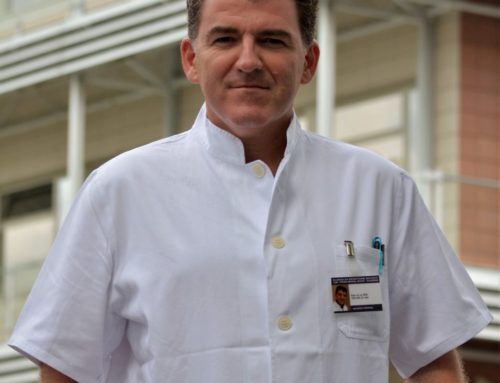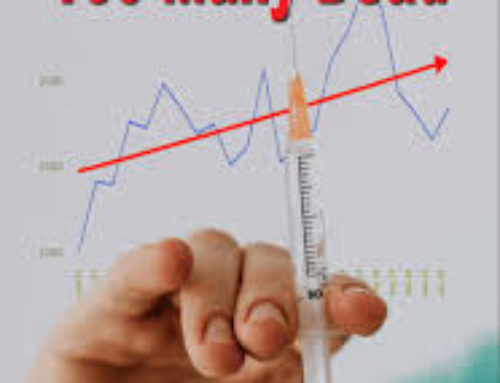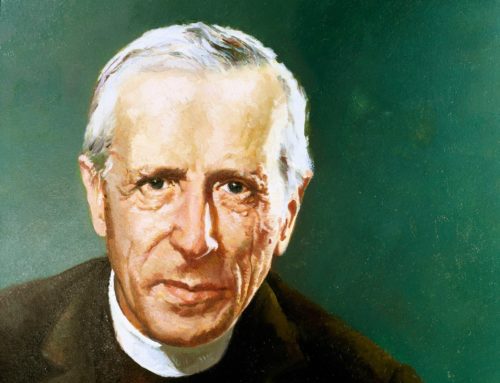Introduction
This guide helps you reflect on the coronavirus pandemic in the light of Laudato Si’. It uses the “see, judge, act” model that is common in Catholic social teaching.
See In order to better understand the causes and consequences of the coronavirus pandemic, read the summary information and then reflect on the questions that are provided. You may wish to reflect on these questions in silence, by writing your responses in a journal, or by discussing them with a small group.
Judge In order to discern how God is calling you to respond, read the quotations and then reflect on the questions that are provided. Again, your reflection may take the form of silence, written responses, or discussion with a small group.
Act After understanding the situation and discerning your response to it, it’s important to take action. You may choose from one of the options suggested or take your own path, however God is calling you.
You’re invited to return to this process again after your action is completed. This way, you’ll have an ongoing understanding of the situation and God’s calling in your life.

See
Causes of the coronavirus crisis
The coronavirus pandemic has created uncertainty and suffering in our world. Our compassion goes out to those who suffer directly from the COVID-19 respiratory disease, those who put themselves at risk every day to serve others, and those who have lost loved ones and livelihoods.
In addition to the tragedy of this experience, we recognize the tragedy that a disease such as the coronavirus has long been predicted.
Many of the most devastating diseases from the past few decades, such as Ebola, bird flu, and SARS, have come from animals, just as this coronavirus did. In fact, 75% of emerging infectious diseases come from the animal world. The coronavirus that is now sweeping the world first arose from bats.
In 2007, scientists warned that the presence of these viruses in bats was a “timebomb,” especially taken together with the increasing practice of destroying natural habitats and trading in illegal wildlife, which reduces the natural barriers that would otherwise separate us from these animals.
The emergence of this coronavirus is one sign of the devastating consequences of the way we treat nature and each other. In the past months, bushfires made more likely by climate change have ravaged Australia. Unusually hot weather and heavy rain associated with climate change have given rise to a devastating storm of locusts in Eastern Africa. Sadly, even air pollution is increasing the risk of death for people who have COVID-19.
We cannot be healthy as humans if the planet is unhealthy. Around the world, we see that the human family is part of the natural world, and that the way we treat nature, each other, and the Creator are all connected.
Risk and consequences
As with other crises, the consequences of the coronavirus will be felt both locally and globally, in both the short term and the long term.
In places where the outbreak has been particularly severe, families now care for and grieve over their loved ones. Mandatory quarantines and curfews have brought entire economies to a standstill and led to the loss of work. In some places, the pandemic has exposed dysfunctional governments; in others, it has provided a pretext for corruption; in still others, it has led to a rise of authoritarian rule. In the long term, there is great uncertainty about economic recovery and the stability of social institutions.
The risk of harm from the coronavirus is greatest to the most vulnerable. The 2 billion people who work in the informal economy, often selling goods and services in the street, must continue mixing with large crowds to feed themselves and their families. The 2.6 million people who live crammed into refugee camps, often with no running water, are not able to keep clean or distant from sick neighbors. And with half of the world’s population lacking access to basic medical care, billions are left in the dark.
As one example of how this crisis is felt by the most vulnerable, please consider this testimony from Fr. Daniel Franklin Pilario of Manila. Fr. Daniel describes the situation facing the impoverished people in his district.
Fr. Daniel’s area includes poor people who live in substandard housing and face impossible choices. “In the densely populated zones isolation is impossible. From the very beginning, this situation presented itself as critical for the most vulnerable.”
Despite the fact that the most poor must work to eat, and despite the fact that many live with entire extended families in a single room, the president has encouraged police services to shoot on sight those who break the quarantine. “In this difficult situation, many Filipino citizens are asked to choose how to die, from the virus or from hunger.”
Even knowing how to provide assistance is difficult, as social institutions like an accurate census are sorely lacking. In this situation, the most vulnerable just don’t count: “They don’t have names, they don’t have faces, they don’t have anything.”
Hope
Although this pandemic has been difficult for all and devastating for many, it has also tapped a wellspring of the loving kindness that Jesus calls us to share.
The selfless courage of doctors, nurses, janitors, grocery workers, and mail carriers has enabled life to continue, often in a literal sense. Countless acts of compassion and grace have eased the burdens of loved ones. Inspiring displays of solidarity have encouraged the weary to continue their fight.
The creativity and compassion of the poorest and most vulnerable is particularly instructive.
As examples, consider a mother in the United States who goes without food so that her children might eat, a neighbor in Spain who offers free childcare to those who must work, and young migrant nurses who have unexpectedly become heroes in Germany.
The inspiring global response to the pandemic, in which each of us does his or her own part to protect everyone, is the kind of response that is needed to solve the ecological crisis.
By coming together as individuals within social frameworks that protect the common good, we can heal our relationships with the Creator, nature, and each other.
Pause for reflection
With the larger picture of the coronavirus in mind, reflect on the following questions:
- What are some causes of this crisis?
- What are some of its consequences?
- What are the specific ways that more vulnerable people may be harmed during this pandemic? What are some of the gifts that more vulnerable people offer?
- What are the specific ways that communities have come together to demonstrate love for their neighbors during this time?
- What are some similarities between the coronavirus pandemic and our ecological catastrophe?
Judge
Understanding the coronavirus pandemic is the first stage in responding to it. Next, we are called to discern God‘s call in our lives.
To begin, please consider the following passages from scripture and from Laudato Si’. You’re encouraged to read these passages slowly and contemplatively. Feel free to speak them aloud, to breathe deeply between them, and to note down any thoughts or feelings that occur to you while you’re reading.
Scriptures on justice
“Is not this the fast that I choose: to loose the bonds of injustice, to undo the thongs of the yoke, to let the oppressed go free, and to break every yoke?” (Isaiah 58:6)
“He has told you, O mortal, what is good; and what does the Lord require of you but to do justice, and to love kindness, and to walk humbly with your God?” (Micah 6:8)
“Speak out for those who cannot speak, and for the rights of all the destitute” (Proverbs 31:8)
Scriptures on the most vulnerable
“For the Lord your God is God of gods and Lord of lords, the great God, mighty and awesome, who is not partial and takes no bribe, who executes justice for the orphan and the widow, and who loves the strangers, providing them food and clothing.” (Deuteronomy 10:17-18)
“Those who despise their neighbors are sinners, but happy are those who are kind to the poor.” (Proverbs 14:21)
“‘For I was hungry and you gave me food, I was thirsty and you gave me something to drink, I was a stranger and you welcomed me, I was naked and you gave me clothing, I was sick and you took care of me, I was in prison and you visited me.’ Then the righteous will answer him, ‘Lord, when was it that we saw you hungry and gave you food, or thirsty and gave you something to drink? And when was it that we saw you a stranger and welcomed you, or naked and gave you clothing? And when was it that we saw you sick or in prison and visited you?’ And the king will answer them, ‘Truly I tell you, just as you did it to one of the least of these who are members of my family, you did it to me.’” (Matthew 25:35-40)
From Laudato Si’
“We need to strengthen the conviction that we are one single human family. There are no frontiers or barriers, political or social, behind which we can hide, still less is there room for the globalization of indifference.” (52)
“A sense of deep communion with the rest of nature cannot be real if our hearts lack tenderness, compassion and concern for our fellow human beings. It is clearly inconsistent to combat trafficking in endangered species while remaining completely indifferent to human trafficking, unconcerned about the poor, or undertaking to destroy another human being deemed unwanted. . . . Everything is connected. Concern for the environment thus needs to be joined to a sincere love for our fellow human beings and an unwavering commitment to resolving the problems of society.” (91)
“When we speak of the ‘environment’, what we really mean is a relationship existing between nature and the society which lives in it. Nature cannot be regarded as something separate from ourselves or as a mere setting in which we live. We are part of nature, included in it and thus in constant interaction with it. . . . We are faced not with two separate crises, one environmental and the other social, but rather with one complex crisis which is both social and environmental.” (139)
Pause for reflection
After reading, spend a few moments in quiet prayer. Invite the Holy Spirit into your heart and listen for any guidance you may receive. Then reflect on the following questions.
- What is God’s vision of justice?
- What is God telling me about the most vulnerable of my neighbors?
- How do the lessons of Laudato Si’ apply to this crisis?
- In a general way, how am I called to respond to this moment? In a more specific way, do I feel the Holy Spirit moving me to take a particular action?
- How will responding to this crisis prepare me for long-lasting engagement in the project of protecting God’s creation?
Act
“My sisters and brothers, what good is it to profess faith without practicing it?” James 2:14
“The effects of the present imbalance can only be reduced by our decisive action, here and now. We need to reflect on our accountability before those who will have to endure the dire consequences.” (Laudato Si’, 161)
“Love, overflowing with small gestures of mutual care, is also civic and political, and it makes itself felt in every action that seeks to build a better world. Social love is the key to authentic development. In this framework, along with the importance of little everyday gestures, social love moves us to devise larger strategies to halt environmental degradation and to encourage a ‘culture of care’ which permeates all of society.” (Laudato Si’, 231)
After seeking to better understand the coronavirus and discern God’s call in your life, you’re invited to put your faith into action.
As suggestions, consider taking action in one of the ways described below. If you feel that the Holy Spirit is leading you in another direction, please feel free to share your commitment with the world by posting it on social media with the hashtag #LaudatoSi5.
Pray
Pray for the well-being of those who suffer now and for those who face great uncertainties in the future.
- Be sure to join the global moment of prayer at noon local time on 24 May— information is available here.
- A simple guide to hosting an online prayer service is here.
- Invite your pastor to incorporate the day of prayer into the Sunday liturgies.
Advocate
Advocate for better care of the most vulnerable. In this way, you will help ensure that the society that arises after the pandemic has passed is safer and more just. A simple guide to advocating for the most vulnerable is here.
Care for creation and your spirit
In light of the deep connections between the ways that we treat nature, each other, and the Creator, spend some time caring for creation. This practice will bring peace to your spirit while protecting our common home. Suggested actions are here.










